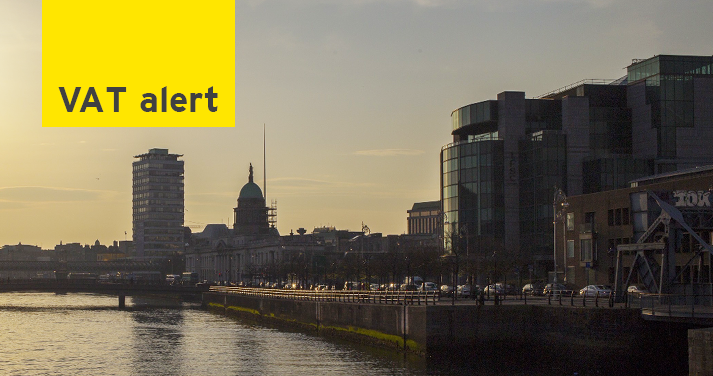Judgment in the Volkswagen Financial Services (UK) case was released by the European Court of Justice (CJEU) on 18 October 2018. This case was a UK referral to the CJEU.
Ireland and the UK currently treat hire purchase (HP) transactions as two distinct supplies – a taxable supply of goods (motor vehicles) and an exempt supply of credit (finance). Neither Ireland nor the UK allow taxpayers to take into account turnover generated from the taxable supply of the motor vehicle when deducting VAT on general overhead costs incurred on HP transactions. The CJEU was asked whether that treatment is correct or not. Previously, the AG held HP should be treated as a single taxable supply, with a right to deduct all of the VAT on associated costs. A major downside from that approach was that the supplier would have become obliged to account for VAT on the credit element. That approach caused concern for the HP / motor industry.

In a judgment that is likely to make welcome reading for taxpayers, the CJEU has disagreed with the AG and held there are two supplies within a HP contract – one a taxable supply of goods and the other an exempt supply of credit.
The CJEU has further held that even where general overhead costs have been incorporated only into the onward price of the exempt supplies of finance, the taxpayer has a right to recover VAT on the basis that these costs relate to the HP transaction as a whole.
The CJEU did not give a precise methodology for how general overhead recovery on HP transactions should be calculated but it did tell us what is not permissible. It held that a non-turnover based recovery method isn’t permitted unless it guarantees a more precise calculation of the deductible VAT. The CJEU effectively prohibited the current recovery treatment of excluding the taxable supply of goods turnover from the recovery rate calculation by holding it doesn’t produce a more accurate outcome than using the default turnover methodology.
The CJEU judgment will lead to relief among providers of HP to consumers and in the motor industry generally that there is:
This should put an end to the argument that input tax recovery is only available if the cost of an input can be traced to the price of a taxable output. The Court’s conclusion that deductibility should not be based on the ability to reflect cost components in the onward supply will be useful not only for HP businesses but also in respect of holding company costs.
The Court has not provided guidance as to what a fair and reasonable recovery method would consist of (but it has prohibited the current recovery limitations) so it may take some time before there is a final settled approach.
Affected businesses may wish to:
If you would like to discuss the implications of the judgment further, please feel free to contact me directly.